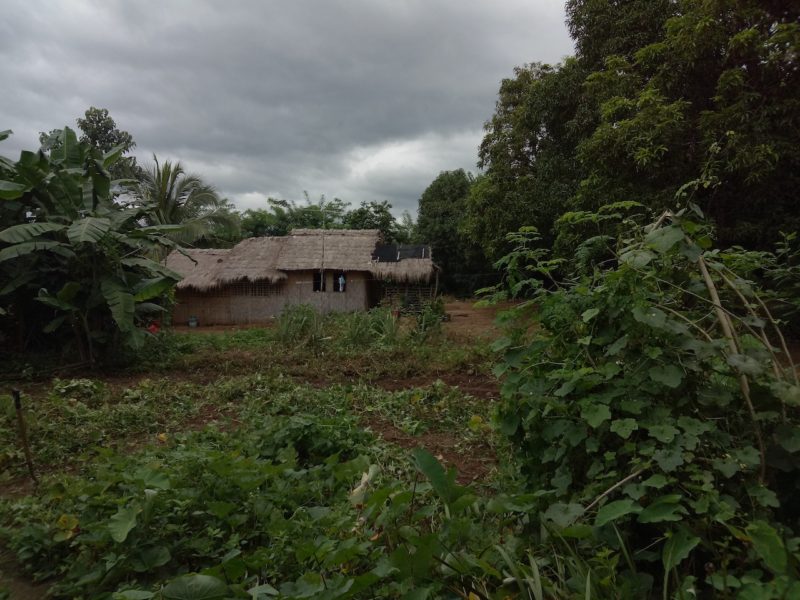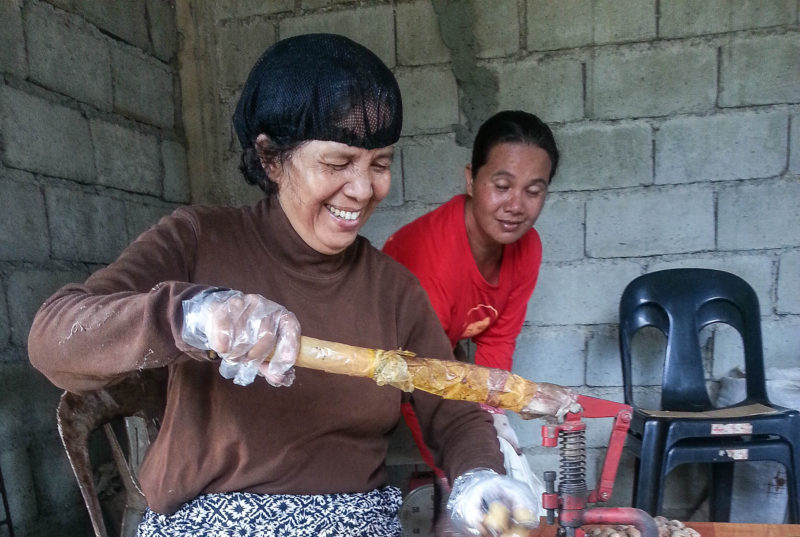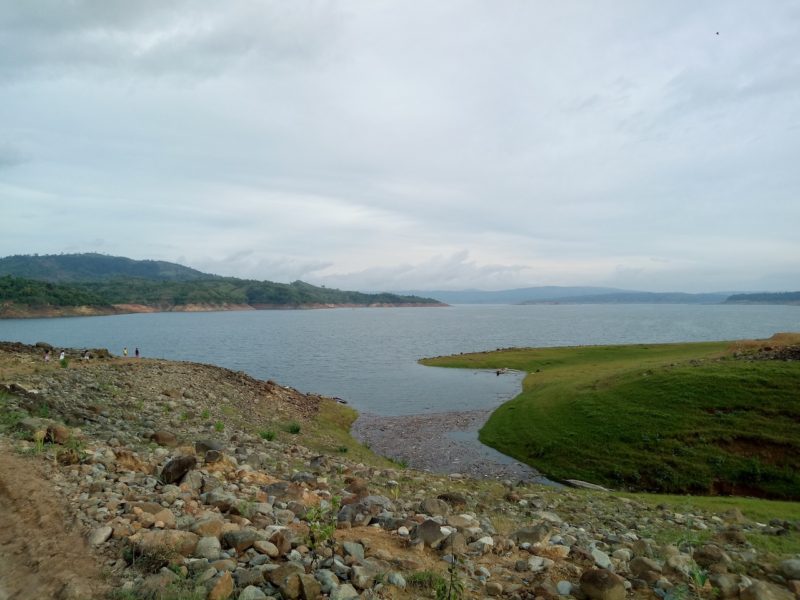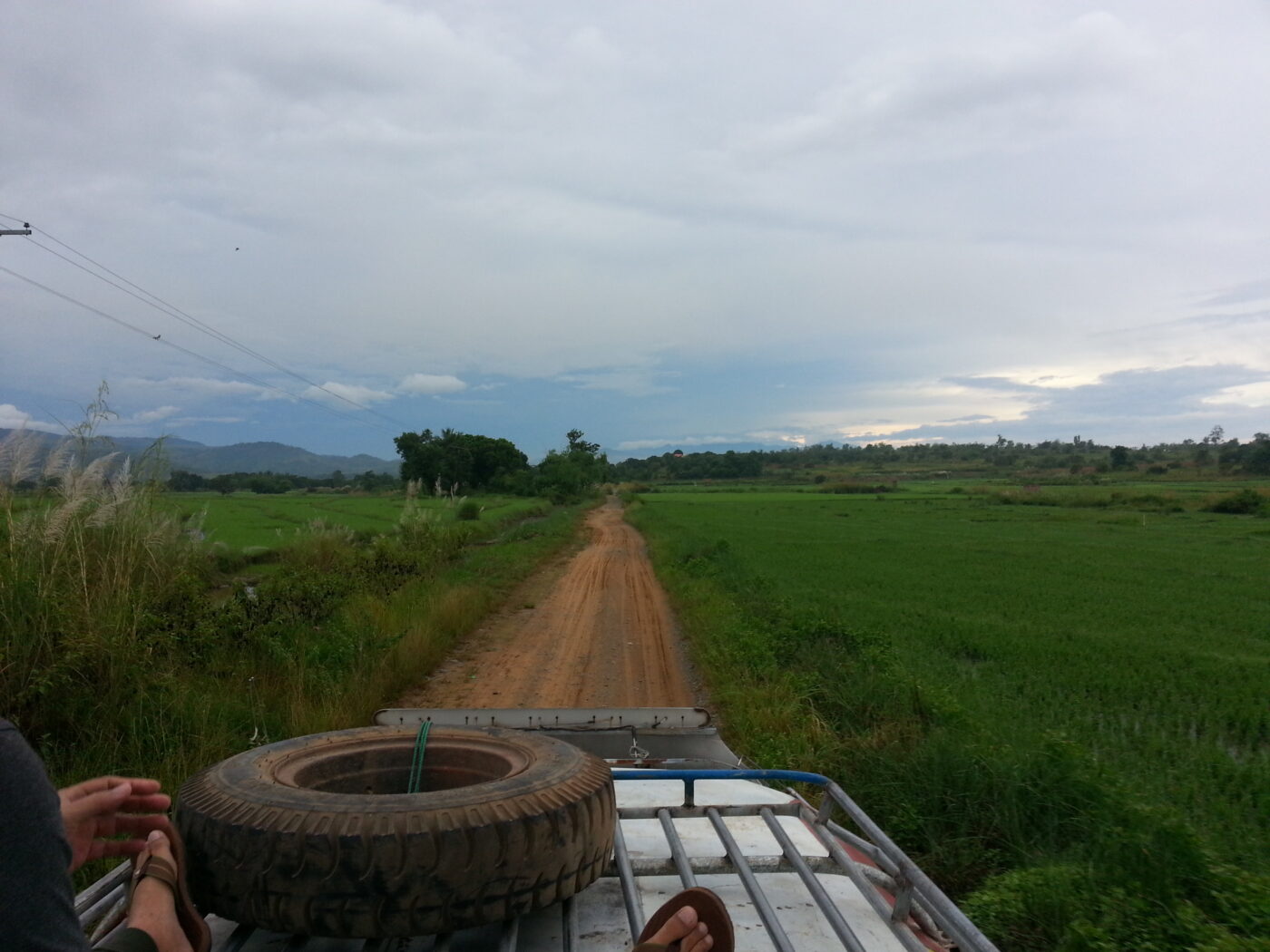ONE OF Rodrigo Duterte’s promises during his campaign was to develop the less urbanized areas of the Philippines, and this promise made him popular among many voters, who won him the Presidency. After his election, he introduced the “Build! Build! Build!” program which aims to build infrastructure in different parts of the country. This ambitious program promises to provide better transportation and infrastructure to boost the economy by spending about PHP 8-9 trillion from 2017-2022.
However, the fulfillment of this promise is yet to be seen. This is the view of many in rural areas such as Pantabangan, Nueva Ecija, which still suffer through rugged roads and dilapidated or nonexistent bridges to urban centers. These roads are needed to help farmers sell their harvest to population and trading centers.
Struggle of a roadless travel
Their pleas to better infrastructure are often unanswered. Among those asking for better roads is Ninay Castro. Commonly referred to as Nanay, she is the president of Samahang Kababaihan ng Conversion, Inc, a cooperative in Barangay Conversion, Pantabangan Dam, Nueva Ecija.
Like other nanays in the Samahan, she earns a living by selling cashew in the city of Cabanatuan, nearly 100 kilometers away from their homes in Pantabangan. Due to lack of roads in certain areas, she would have to leave at 4:00 AM. She would rent a jeep or ride a tricycle going to San Jose, an arduous travel since most roads are not built to connect the two areas. From San Jose, she would ride a bus going to Cabanatuan and arrive there at around 11:00 AM. She would wait in the city before 1:00 PM, the time that the supplier will get the products from her. She would then have to go over the same route, arriving home at 8:00 PM.
Good roads are essential to the livelihood of the people of Pantabangan, especially for those who have small businesses in their Samahan. Castro, and many others like her, live in areas that are difficult to access from urban centers, and are thus denied better access to social and economic services.
“Kapag magde-deliver ako ng kasuy sa Cabanatuan, mag-aarkila ako ng tricycle kapag ginabi na ako (Whenever I deliver cashew to Cabanatuan, I would have to rent tricycle because I would arrive late at night already),” says Castro. “Eh siguro, kapag ginawa na ang daan, madali na lang ang pagta-travel (Maybe, when the roads are constructed, it will be easier to travel).”

Rural life in Brgy. Conversion, Pantabangan, Nueva Ecija. Photo by Jireh De Vera

Cashews are a way of life for Ninay Castro. Photo by Jireh De Vera
Promises and roadblocks to roads
The problems that plague the construction of roads in Pantabangan have persisted for some time. It has been a recurring campaign promise to improve Pantabangan’s infrastructure. The construction of roads was used by politicians to attract voters not only in Pantabangan, but from many other small towns in Nueva Ecija.
“Lagi namang ganoon, kapag nagkakandidatuhan, ganun ang sinasabi, ipapaayos ang daan. ‘Yung mga mayor, ‘yan ang laging sinasabi (It is always like that. During elections, that is what candidates say—to construct the roads. Even the mayors, that is what they always say),” says Castro.
In the face of this long-standing promise, there may be a reason for renewed hope as the local government has started reaching out to the presidents of associations and cooperatives in the local community. According to Castro, they were consulted on the construction of the roads last August. Construction is slated to start in 2018.
She mentions that the project was formerly under the Bottom-up Budgeting (BuB) program of the Department of the Interior and Local Government (DILG), a program dropped under the Duterte administration. But she adds that now, there is already an allocated budget for the project, “Talagang sinabi sa amin ng kontratista na 200 milyon at nailabas na ‘yun (We were told by the contractor of the 200-million budget which had been shelled out already).”
Among the main problems that hinder the construction of infrastructure in rural Nueva Ecija is corruption. In recent years, local government units in Nueva Ecija have been marred by corruption, which made development in certain localities stagnant. According to Castro, some infrastructure projects were supposedly mismanaged by Aurelio Umali, former Nueva Ecija governor and representative of the province’s Third District. “Ibinulsa lang ang pera ni Umali (The fund was pocketed by Umali),” claims Castro.
On December 2016, Umali was among those indicted by the Ombudsman over his questionable use and mishandling of the PHP 15 M Priority Development Assistance Fund (PDAF), also known as the pork barrel, in 2005. Umali was also found guilty of “grave misconduct, gross neglect of duty and conduct prejudicial to the best interest of the service and was ordered dismissed from the service.”
Likewise, last 2015, Lucio Uera, former mayor of Pantabangan, was convicted of graft after approving a contract with Priva Power, a company where his wife was a director and stockholder. He violated a law prohibiting public officials from entering into a contract where he or she has a direct interest in. Uera was “sentenced to a prison term ranging from 6 years and one month, to 10 years, with perpetual disqualification to hold public office.”

Photo by Jireh De Vera
“Yung unang mayor, ‘yung Borja, ‘yun ang medyo maayos. Ngayon, ‘yung sinundan niya, ‘yung Uera, eh wala, nagpayaman lang nang nagpayaman (The mayor before, Mayor Romeo Borja Sr., was somehow decent. Now, his successor Uera, had done nothing but to grow his wealth),” says Castro. Incidentally, during the 2016 elections, Uera was just 288 votes behind the current mayor, Roberto Agdipa.
As the so-called “golden age of infrastructure” is being ushered in the country, communities in the peripheries—whose poverty is defined not only by their lack of resources but by lack of access to basic services—long for the construction of roads in their localities to help them in their various livelihoods, however small they may be.
Many residents of Pantabangan have gotten used to broken promises of new roads. Nevertheless, their hope remains that the government’s projects will soon be closer to reality.
“Kasi mula’t sa mula pa, ‘yun ang aming talagang hinihiling. Kung minsan nga, kung may mga patrabaho ang gobyerno, hindi naman ito umaabot sa amin dito (Even from the start, it has always been our wish; because there are instances when the jobs offered by the government don’t reach our place),” says Castro.




